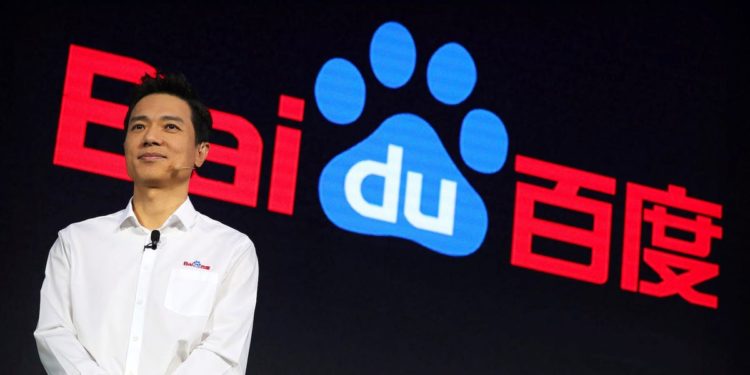The CEO of Chinese tech giant Baidu says DeepSeek’s virality pushed the company to make its own artificial intelligence model open source.
Open-source models allow for the free and open sharing of software to anyone for any purpose. DeepSeek, an emerging Chinese startup, launched an open-sourced AI model in January, rattling US tech and AI companies. Third-party tests showed the model outperformed its peers from OpenAI, Meta, and other top developers, and the company said it was built for less money.
“One thing we learned from DeepSeek is that open-sourcing the best models can greatly help adoption,” Robin Li, Baidu’s CEO, said on an earnings call on Tuesday. “When the model is open source, people naturally want to try it out of curiosity, which helps drive broader adoption.”
Baidu announced last week that it would make its latest AI model — Ernie 4.5 — open-source from June 30. The news marks a reversal of Li’s belief that large language models should not be open-sourced.
The CEO previously said that closed-source models are generally more powerful and economical than open-source ones. In an interview last year with Chinese media outlet Yicai, he said that open-source models are a good fit for academia, but not for businesses.
Other executives, including the CEO of Mistral and Meta’s chief AI scientist, have touted DeepSeek’s success as a win for open-source models.
Baidu on a tear
As competition in the chatbot space intensifies, Baidu also announced on Thursday that it would make its AI chatbot free from April 1. The company cited better technology and reduced costs.
Hong Kong-listed Baidu shares surged nearly 12% before closing 5.7% higher on the day of the chatbot announcement.
In late 2023, months after Ernie was released, Baidu started charging 59.90 renminbi, or $8.20, for premium search features.
“Ernie 4.5 will be our best model ever. And we would like to have our users and customers try them out more easily than before,” Li said on the earnings call on Tuesday.
Baidu faces fierce competition from competitors, including Alibaba’s Qwen and ByteDance’s Doubao 1.5 Pro. Search rival Tencent announced last week that it would integrate DeepSeek into its WeChat messaging platform.
Baidu’s move to open-source and make its chatbot free came days before Chinese leader Xi Jinping’s Monday meeting with the country’s tech moguls, signaling his support to revive the sector. The meeting included gaming giant Tencent CEO Pony Ma, electric vehicle maker BYD CEO Wang Chuanfu, and Huawei CEO Ren Zhengfei. Baidu’s Li did not appear to attend the high-profile event.
Baidu is also part of a recent stock rally for Chinese tech firms, which are making a comeback after Beijing’s pandemic-era crackdown on Big Tech.
On Tuesday, Baidu reported it doubled its third-quarter profit to $711 million, compared to the year earlier. Revenue dropped 2% to $4.67 billion in the quarter ending in December, beating analyst estimates of $4.3 billion.
Its New York-listed shares slid 7.5% after hours on Tuesday following the earnings results.
The post Baidu’s CEO credits DeepSeek for the push to open-source its own AI model appeared first on Business Insider.



















